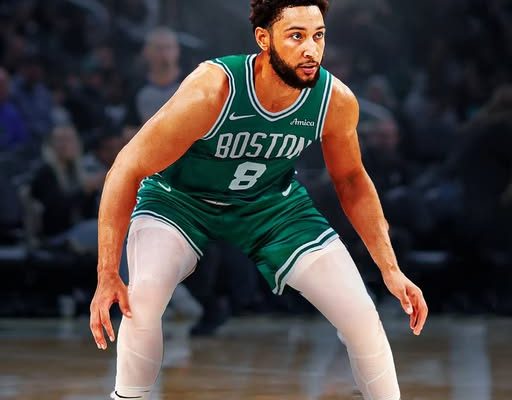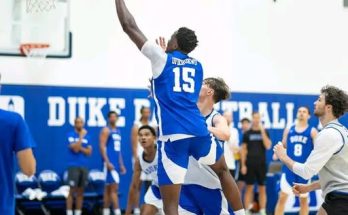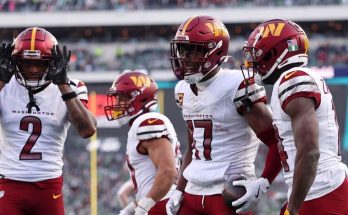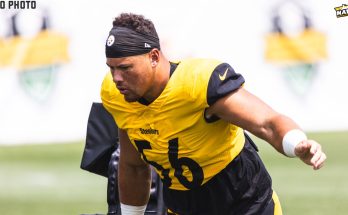Ben Simmons was once the face of a franchise. A three-time All-Star and former No. 1 overall pick, he was hailed as a generational defensive talent with rare court vision and size at the point guard spot. But a combination of injuries, offensive struggles, and off-court uncertainty derailed what once seemed destined to be a Hall-of-Fame caliber career. Now, with the NBA world having largely moved on, Simmons may be getting one last shot at relevance—this time, not as the primary ball handler or cornerstone of a team, but as a backup big man in Boston. And the opportunity could be exactly what he needs.
With the Boston Celtics navigating a post-title world shaped by roster reshuffling, Simmons’ potential arrival comes at a time when the team’s frontcourt depth is paper-thin. Kristaps Porzingis is gone, likely due to the financial implications of keeping together a high-tax contender. Luke Kornet signed elsewhere after his breakout campaign, and veteran Al Horford is expected to retire or take on an off-court role. That leaves Boston scrambling for low-cost, high-upside big men who can plug minutes behind young centers or support small-ball units. Simmons, whose 6’10” frame and elite defensive versatility once defined his appeal, may now find new life as a role player in the frontcourt.
For Simmons, the shift in identity wouldn’t be entirely foreign. During his best seasons in Philadelphia, he was often lauded for guarding all five positions, often being deployed on the opponent’s best scorer regardless of position. He would take turns locking up point guards like Trae Young or switching onto bigs in the post. That ability is what made him so coveted—even when his jump shot drew criticism and his reluctance to attack the rim in crunch time became a viral talking point. But in Boston, none of those burdens would be his to bear.
Jaylen Brown, fresh off a Finals MVP and extension that cemented his role as the franchise’s on-court leader, isn’t asking for help scoring the ball. Derrick White, Anfernee Simons, and Payton Pritchard have evolved into one of the league’s most dynamic guard rotations. Simmons, in this case, wouldn’t be touching the ball 15 seconds into the shot clock or orchestrating an offense from the top of the key. Instead, his job would be clear: defend, rebound, run in transition, and keep the ball moving. If he can thrive in that narrow but vital lane, it might not only save his career—it could redefine it.
And Boston might just be the ideal place for that transformation to take root. The Celtics have a recent history of rehabilitating or maximizing fringe bigs. Luke Kornet, an undrafted big man bouncing between G-League stints and minimum contracts, became a fan favorite and key rotational piece under Joe Mazzulla’s system. The Celtics empowered him as a rim protector and occasional floor spacer, ultimately earning him a multi-year deal. If they could do that for Kornet, imagine what they could unlock with Simmons’ athletic profile, high basketball IQ, and defensive instincts.
Moreover, Boston’s current system is tailored to bring out the best in players who can defend multiple positions and make quick reads. Their defensive schemes thrive on switching, rotating, and staying fluid—concepts Simmons excels at when engaged. Offensively, Boston’s guard-heavy core means Simmons would rarely need to shoot, a psychological and tactical relief that could allow him to focus on playmaking out of short rolls or operating from the elbow as a secondary distributor.
What makes this story compelling isn’t just the potential basketball fit, but the narrative arc itself. Simmons has been mocked, criticized, and doubted by fans and media alike for the past several seasons. After a turbulent exit from Philadelphia, a forgettable stint in Brooklyn marred by health issues and inconsistency, and a season that saw him fade completely from the national spotlight, many believed he was done. But Boston is a city that embraces second chances. It’s a place that thrives on grit, redemption, and the kind of comeback tales that feel plucked from sports movies. Think Kevin Garnett screaming in triumph. Think Paul Pierce rolling out in a wheelchair only to return. Now imagine Simmons, after all he’s been through, hoisting a block in transition and flipping an outlet pass to a streaking Jaylen Brown, TD Garden erupting in appreciation—not for who he was supposed to be, but for who he’s become.
Of course, there are risks. Simmons hasn’t played more than 50 games in a season since 2019–20. His back problems, confidence issues, and sometimes unpredictable availability have made coaches and front offices wary. Boston, a team with championship aspirations, can’t afford to carry dead weight. But that’s what makes this opportunity intriguing. If Simmons does sign, it will likely be for the minimum or a low-cost deal with incentives—low risk, potentially high reward. And for Simmons himself, the stakes couldn’t be higher. This is likely his final chance to carve out a sustainable role in the NBA.
Training camp and preseason will be the proving ground. How he moves, how he handles contact, and how he communicates defensively will all be under a microscope. But the Celtics don’t need an All-Star. They don’t need him to score 15 points or run the offense. They need 10–15 solid minutes of versatile defense, smart passing, and positional awareness. If Simmons can give them that—if he can check Nikola Jokic for a few minutes or help slow down Giannis Antetokounmpo for a key stretch in a playoff series—then the signing will be a success.
Fans may scoff, but the league is filled with players who reshaped their legacies by embracing smaller roles. Shaun Livingston became a champion in Golden State after devastating injuries forced him to abandon the stardom trajectory. Dwight Howard revived his career as a bench energy guy in Los Angeles. Even Al Horford himself, once a franchise centerpiece, accepted being a defensive glue guy in his later years. Simmons, still just 28, has time to follow suit—if he’s willing.
Boston’s championship window remains open, but it won’t stay that way forever. With massive contracts on the books and a core that’s both battle-tested and expensive, the Celtics need bargains wherever they can find them. Simmons, for all the noise and baggage, could be that rare find: a player whose stock is so low that the only direction left is up. And in a locker room built on accountability and culture, perhaps that’s the environment he needs.
Joe Mazzulla’s system is also better suited for Simmons than many would assume. Boston plays fast, emphasizes spacing, and encourages quick decision-making—all traits Simmons, when healthy and focused, can complement. As a short-roll passer or a defensive quarterback calling out switches and rotations, he might rediscover the joy that once made him such a unique prospect. And if the Celtics’ coaching staff can protect him from being overexposed or asked to do too much too soon, there’s no reason he couldn’t become a valuable chess piece in their rotation.
A possible Simmons signing won’t move betting lines or dominate headlines like a superstar trade would. But the ripple effect could be significant. Boston doesn’t need another All-NBA player—they need role players who won’t crumble in May and June. And if Simmons can embrace his new identity, the Celtics might have added a piece no one saw coming.
It’s hard to know where Ben Simmons’ journey will ultimately lead. The NBA is a brutal, unforgiving business. But every once in a while, it gives someone a shot at reinvention. For Simmons, Boston could be that place. Not to redeem his past, but to write a new chapter. One that’s grittier, humbler, and maybe even more meaningful.



